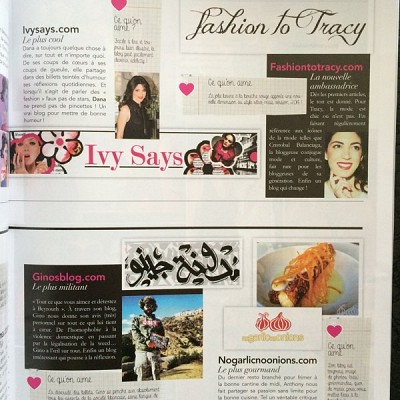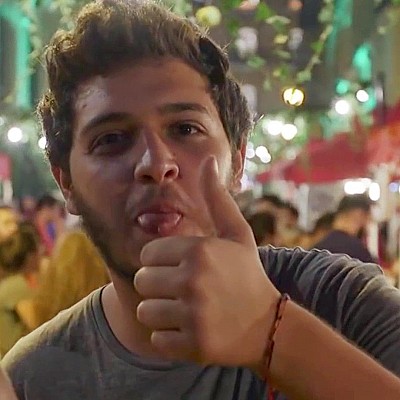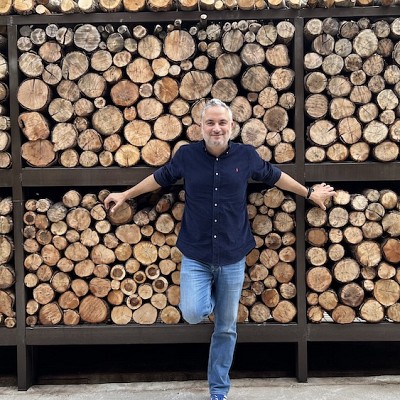(TRIPOLICY.ORG) Dubbed “Lebanon’s biggest optimist,” Anthony Rahayel does not fail to live up his reputation. Born in 1983 in Beirut, Rahayel grew up spending his summers in Faytroun, Lebanon. Although he acknowledges he did not grow up in a small village, he expresses his attachment to the small village way of life that is reminiscent of the nostalgia so many Lebanese feel, whether living within its borders or abroad. And it is in this optimistic nostalgia, combined with realistic hope for the future, that Rahayel has sparked hard-earned joy in the hearts of Lebanese throughout the world.
As an initiative-taker from when he was a child, Rahayel credits the majority of his growth into the person he is today to his experiences as a scout. Throughout his time as a scout, he traveled throughout Lebanon, developed a respect for all people, learned how to cook, and slept outdoors surrounded by Lebanese nature. Although he’s traveled to forty-two countries—as documented on both his well-renowned Instagram page, No Garlic No Onions, as well as on his YouTube channel—his love for Lebanon is tangible, an extension, he says, of his sense of loyalty to the country: “It’s important to travel to know the value of what you have. You have to appreciate what you have in order to live happily.” Lebanon is the only country, states Rahayel, that has everything: beaches and mountains, greenery and snow, a love of life and an emphasis on good food, and above all else, family gatherings every Sunday. “For this reason, I always tell people that you can’t curse your country. It didn’t do anything to you. You elected someone you may not like today, but the country itself is the most beautiful country on Earth.”
Composed of 2,200 villages, Lebanon itself has been extensively explored by Rahayel, who looks back on Lebanon’s history and expresses an appreciation for all that has contributed to the shaping of Lebanon as we know it today, from the time of the Phoenicians to the Ottomans and the French mandate, and everything that fell in between. Offering more than 50 ways to eat kibbeh and 30 ways to eat tabbouleh, Lebanon has continued to shift and morph throughout the years, serving as a cultural bridge between places and across times.
However, according to Rahayel, it is not modern-day Beirut, but instead cities like Tripoli that remind us Lebanese of our roots. “[Tripoli] reminds us to be humble, to return to the Lebanon that used to be—a message I’ve been sharing for years: back to our roots, back to the village, back to originality. Lebanon is not New York. Lebanon is not Paris. Lebanon is not the modernism that people see: Lebanon is our roots. Modernity is nice, but we cannot forget where we are from, and Tripoli reminds us of this. It reminds us of who we are.”
Amidst all of the difficulties that Tripolitans face today, how can Tripoli push forward? According to Rahayel, it comes down to two major initiatives. The first is to break the cycle of electing the same officials to represent the interests of the city. The second is look at Tripoli as an investment city, promoting more tourism to travel north, and eliminating the images of Tripoli as a dangerous city. “Its citizens are good,” states Rahayel, “and they deserve someone to stand by them.” Toward this end, for the Tripolitan diaspora, he encourages more collaboration with citizens and entrepreneurs within the city, supporting small businesses by providing an outlet for their products abroad, a particularly worthy route given the global interest in handmade and artisanal products.
Noting that he follows his instincts in everything he does, Rahayel’s affection—and hope—for Tripoli does not waver: “Tripoli has something. It has people, it has beauty, it has colors. Some might look at a wall and see cables, but I see colors. Some might see traffic in the old souks, but I see life. In the open market, some might see chaos, but I see it as very inspiring. I like the people there: I like their smiles, despite their poverty, despite their hardships. I like Tripoli’s heartbeat: it has people who do not want to give up.”





































